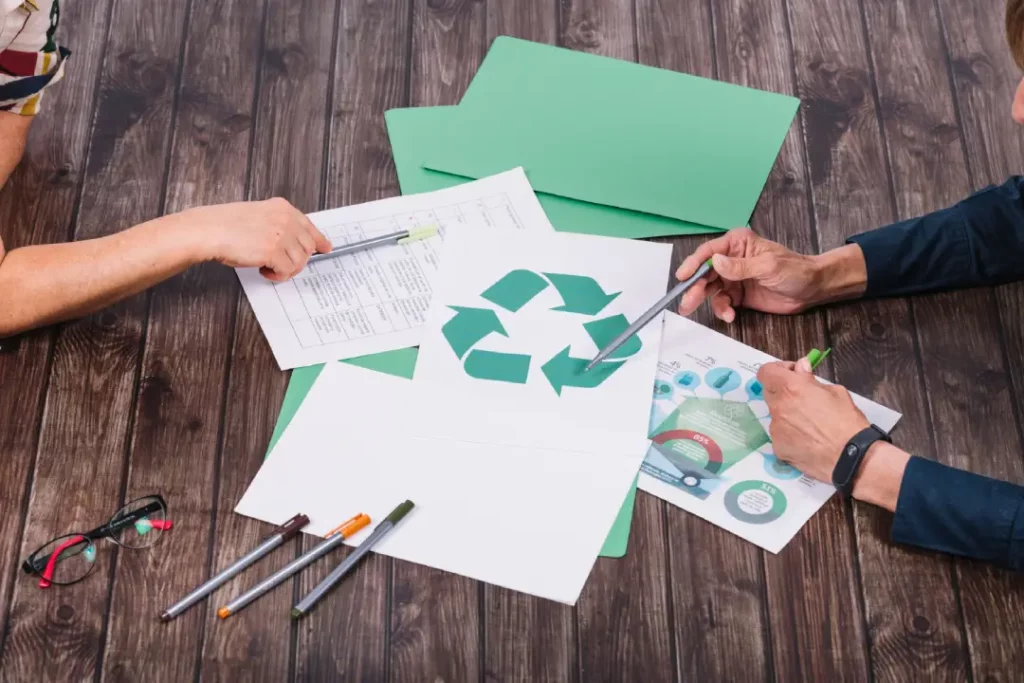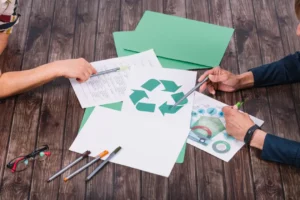Because of the rapid speed of our modern society, the problem of trash disposal has become an increasingly pressing concern. Waste production is reaching levels that have never been seen before as a result of the exponential growth of the world’s population and the progression of industrialization. It is imperative that we make a transition toward more responsible waste disposal procedures since the impact on our environment and ecosystems is particularly disturbing. This book is intended to shine a light on the significance of proper waste management and give ideas that are applicable to both people and companies alike through its practical advice.
Understanding the Impact of Irresponsible Waste Disposal
Irresponsible waste disposal poses severe threats to our environment. From landfills overflowing with non-biodegradable materials to pollutants seeping into water sources, the consequences are far-reaching. Wildlife habitats are disrupted, air quality is compromised, and ecosystems are pushed to the brink. Recognizing the urgency of the situation, individuals and organizations must adopt responsible waste disposal practices to mitigate these adverse effects.
The Three R’s: Reduce, Reuse, Recycle
Reduce: The first step in responsible waste disposal is to reduce the amount of waste generated. This can be achieved through conscious consumer choices, such as opting for products with minimal packaging or buying in bulk to reduce packaging waste. Additionally, consider using reusable items like water bottles, shopping bags, and containers to cut down on single-use plastics.
Reuse: Before discarding items, evaluate if they can be reused. Items such as glass jars, containers, and clothing can often serve a second purpose with a little creativity. Encourage a culture of reuse by donating or selling items instead of disposing of them. This not only minimizes waste but also extends the lifespan of products.
Recycle: Recycling is a key component of responsible waste management. Many materials, including paper, cardboard, glass, plastics, and certain metals, can be recycled. Familiarize yourself with local recycling programs and guidelines to ensure proper disposal. Separating recyclables from general waste is a simple yet effective way to contribute to recycling efforts.
Choosing Responsible Waste Disposal Methods
Commercial Recycling Services: Many businesses specialize in recycling various materials, including plastics, paper, and metals. Partnering with these services ensures that waste is processed responsibly, diverting it from landfills.
Landfill Diverge: Some waste items are not suitable for traditional recycling methods. Landfill diverge involves separating items that can be broken down over time from those that can’t, diverting biodegradable waste away from landfills.
Product Destruction: In cases where sensitive or expired products need disposal, consider product destruction services. These services ensure that items are disposed of securely and responsibly, preventing them from entering the market or contributing to waste pollution.
Roll-Off Hauling: For larger quantities of waste, especially in construction or renovation projects, roll-off hauling services are invaluable. These services provide large containers that can be filled with waste and then transported for proper disposal.
The Importance of Full Circle Recycle Programs
Engaging in full-circle recycling programs promotes a closed-loop system where materials are recycled and reused in the production of new goods. This sustainable approach reduces the demand for raw materials and minimizes the environmental impact of manufacturing processes. Businesses and individuals alike should actively seek and support such programs to contribute to a more circular and sustainable economy.
The Local Perspective: Fort Worth, TX
It is essential to have a solid understanding of the garbage disposal legislation and facilities in your immediate vicinity. Residents and companies in Fort Worth, Texas have access to a variety of enterprises and services, including roll-off hauling, product destruction services, commercial recycling services, and landfill diverges alternatives. In addition to contributing to the general sustainability of the community, being aware of the options that are accessible makes it easier to dispose of garbage responsibly.
Key Takeaways:
- Reduce, reuse, and recycle to minimize waste generation.
- Explore local recycling programs and guidelines for proper disposal.
- Consider commercial recycling services, landfill diverge, and roll-off hauling for responsible waste management.
- Support full-circle recycling programs to contribute to a closed-loop and sustainable economy.
Conclusion
It is not merely an individual’s responsibility to dispose of garbage in a responsible manner; rather, it is a community responsibility. Individuals and corporations alike have the ability to make substantial contributions to the preservation of the environment by implementing the three R’s reduction, reuse, and recycling practices, as well as selecting proper disposal options. In order to construct a future that is sustainable, it is necessary to be open to full-circle recycling programs and to be aware of the many solutions available for waste management in the local area. It is imperative that we all take responsibility for the environment and collaborate in order to establish a society in which the disposal of garbage in a responsible manner is the standard rather than the exception.







